Search Results
Showing results 221 to 240 of 274
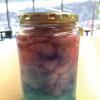
Nebula in a Jar
Source Institutions
In this activity, learners will build a model of a nebula using cotton balls and colored water. Astronomers photograph nebulas and add colors to provide information about the nebula's composition.
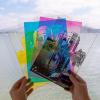
The Three Little Pigments: Science activity that demonstrates the primary and secondary colors of lightScience activity that demonstrates the primary and secondary colors of light The Three Little Pigments Know your C, M, Y, and K.
Source Institutions
Align four color transparencies, each one a single color (cyan, magenta, yellow, and black), and see a beautiful full color image.

Secret Codon
Source Institutions
In this activity, "write" a secret message in genetic code as beads on a string.
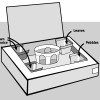
There’s No Place Like Home!
Source Institutions
In this activity, learners make their own bug boxes and test the habitat preference of selected "minibeasts" (bugs).

Bleeding Paper
Source Institutions
In this activity on page 3 of the PDF, learners discover how science and Halloween are fun companions as they make paper bleed.
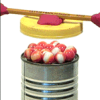
Bearings for Your Whirligig
Source Institutions
Experiment with friction and make bearings for a whirligig! This activity is a nice introduction to friction and bearings and demonstrates why bearings are useful for spinning.
Ride on a Slide: Toys or Tubes Ride Slopes and Angles
Source Institutions
This activity is a hit for family events and all ages—some will finish in 45 minutes; others can go on for hours.
Healthy Buffet
Source Institutions
In this nutrition activity (page 2 of the PDF), learners will be split up into food groups (Fruit, Vegetable, Meat & Beans, Grain, and Dairy) and draw a picture of their favorite food from their g
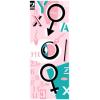
Genetics the Easy Way
Source Institutions
In this activity, learners make critters out of recyclables and apply the rules of mathematics to solve genetics problems.
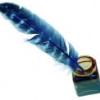
Get It Write
Source Institutions
In this activity, learners explore how pens have been engineered and re-engineered over time. Learners work as a team to develop a working pen out of everyday items.
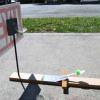
Parabola Basketball
Source Institutions
In this activity, learners build mini-basketball courts and explore the laws of physics. Learners discover that everything you throw or shoot on earth travels in a parabola.
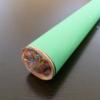
Kaleidoscope
Source Institutions
In this activity, learners build inexpensive kaleidoscopes using transparency paper and foil (instead of mirrors).
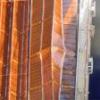
Folding Matters
Source Institutions
In this activity, learners explore how the process of folding has impacts on engineering and is evident in nature.
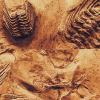
Familiar Fossils
In this activity, learners explore different types of fossils by making their out of dough and objects from around the house.
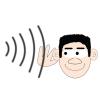
Sound Dampeners
Source Institutions
In this activity, learners will experiment with water- and air-filled balloons as a way of dampening sound before it reaches their ears.
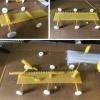
DIY Pasta Rover
Source Institutions
In this activity, learners design and build a NASA rover using raw pasta and candy with a limited imaginary budget.
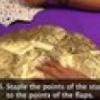
Party Hat Symmetry
Source Institutions
In this hands-on activity, learners make New Year's Eve party hats out of wrapping paper. Learners use symmetry and measurement to cut out shapes they need to assemble the hats.
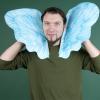
Designer Ears: Make “better” ears!
Source Institutions
Find out what it would be like to have ears shaped differently from your own! Design and make different animal ears then try them out.

Tessellations
Source Institutions
In this activity, learners will engineer a new shape and use it to create a new pattern with no wasted space.
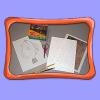
Crazy Camouflage
Source Institutions
In this activity about camouflage, learners create a model that shows how a flounder is able to blend into a variety of environments.
